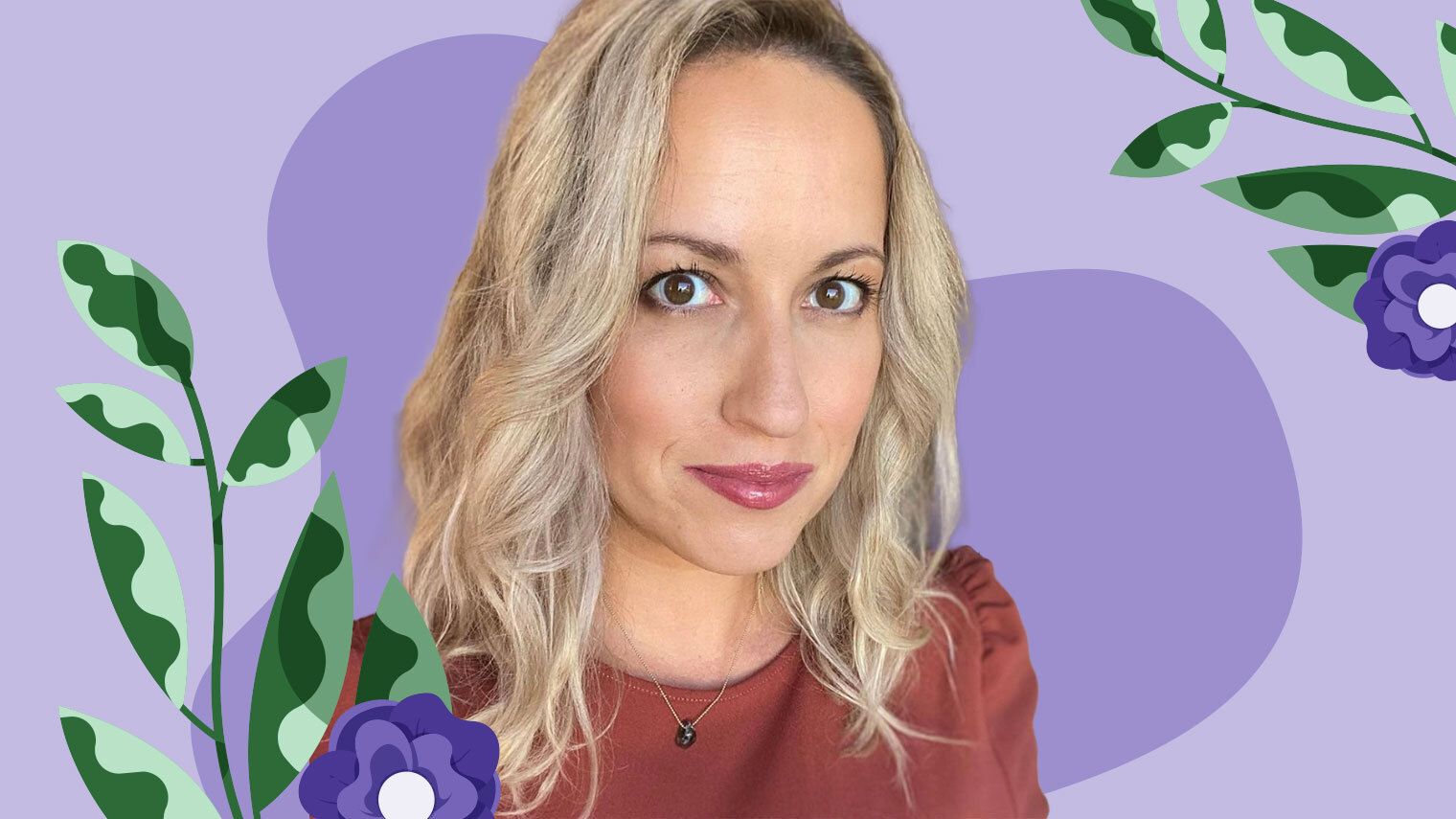Meet Your Guide: Ashley Boynes-Shuck
January 03, 2022
Content created for the Bezzy community and sponsored by our partners. Learn More

Ashley’s goal as the Bezzy RA guide is to create a safe space to share the full range of experiences of life with rheumatoid arthritis.
When Ashley Boynes-Shuck was a teenager, she noticed she started getting really sore after playing sports — and not the kind of sore her classmates were complaining about. She knew it was more than just postworkout aches.
“My grandmother and my aunt both have rheumatoid arthritis (RA) so they kind of recognized what was probably going on,” Ashley says, “So I saw a rheumatologist.”
Sure enough, after a series of labs, imaging, and doctor’s visits, she received a diagnosis of moderate-to-severe RA in multiple joints.
While Ashley had family members with RA, and she’d had juvenile RA as a kid, she said she didn’t fully realize the severity of her condition right away. However, it became pretty apparent right away how isolating it could be.
None of my peers in high school or college knew what I was going through.
— Ashley Boynes-Shuck
“For many years, I didn’t have a solid treatment plan, so I was always going off and on medications,” she remembers. “None of my peers in high school or college knew what I was going through.”
“No one understood the illness. I mean, even grown adults don’t really understand it. So it was a particularly tough time in my life, especially since it was before social media, and I didn’t really have that type of thing as a resource.”
This wasn’t helped, she says, by the fact that her rheumatologist didn’t seem particularly concerned about her emotional health. He never suggested she find a support group or look for additional resources. Instead, he stayed focused only on the physical, leaving Ashley to rely on her grandma and her aunt for advice and emotional support.


Advocating for her community
In her mid-20s, Ashley had to have knee surgery.
“I was really down because I had to take time off work and I had just finished college, so I didn’t know what I was doing with my life,” she says.
So, to help manage it, she started posting about her knee surgery and her RA diagnosis on Twitter, which caught the attention of a local chapter of the Arthritis Foundation, whose members asked her if she wanted to get involved.
“I started connecting with people through the Arthritis Foundation, doing volunteer work and speaking engagements, and talking to people with RA at events — and that turned into a job,” she says.
That’s when Ashley became a full-time patient advocate.
Creating a safe space to land
While Ashley eventually left the job at the Arthritis Foundation, she never left the community — and she kept blogging about her RA. She built a following on Facebook and Twitter, she wrote about the condition for Bezzy’s sister site, Healthline, and was asked to be the community guide for RA Healthline, now Bezzy RA, in 2020.
“I just love being able to connect with people and help patients connect with other RA patients so that I can help decrease those feelings of isolation I felt,” she says.
I want people to know that it’s a safe space to share the good, the bad, and the ugly about life with RA in a judgment-free zone.
— Ashley Boynes-Shuck
“It’s helpful to have that dedicated time and space to talk with other people who just get it, whether you’re in a positive mindset or a negative on that day,” she says. “It gives some validation to be part of that community.”
That’s what she’s looking forward to most continuing as the Bezzy RA guide.
“I view my role as a way to provide a safe space,” she says. “I want people to know that it’s a safe space to share the good, the bad, and the ugly about life with RA in a judgment-free zone, so we can all be there to support, encourage, and uplift one another.”
Fact checked on January 03, 2022


Like the story? React, bookmark, or share below:
Have thoughts or suggestions about this article? Email us at article-feedback@bezzy.com.
About the author